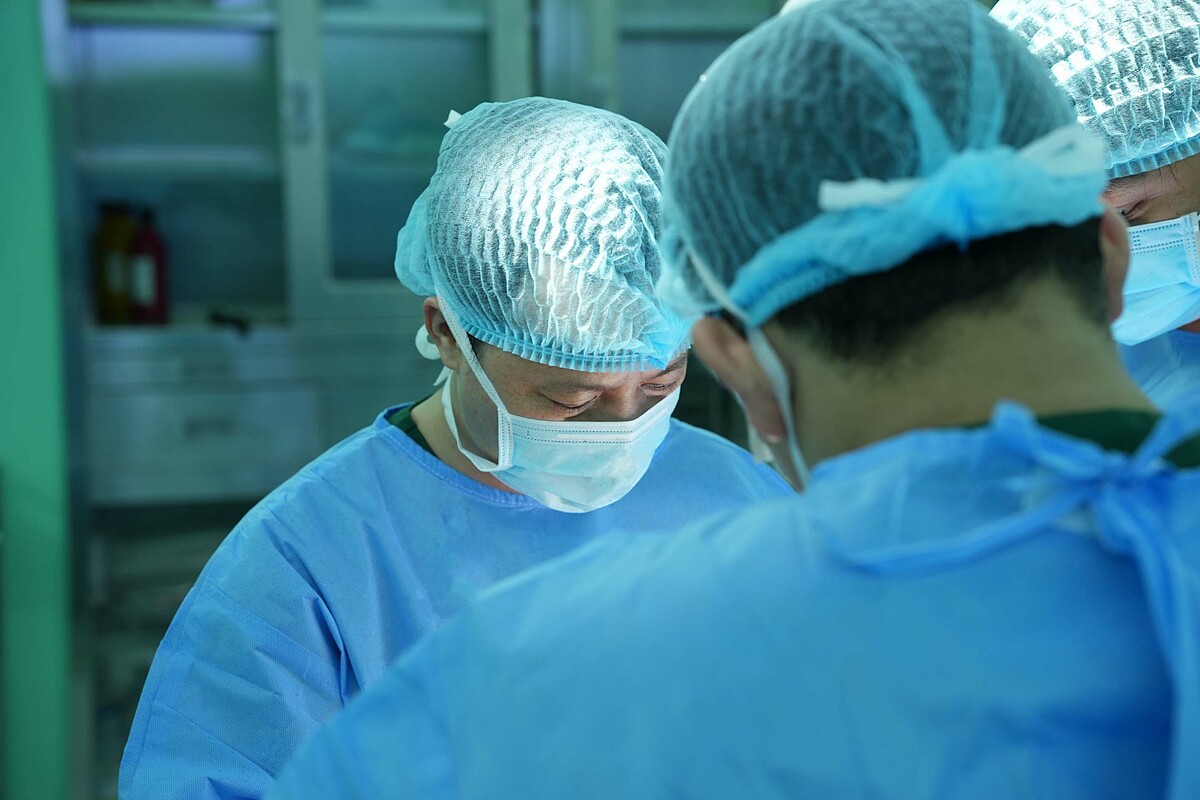On 2/8, Dr. Phan Thanh Toan, Head of the Emergency, Resuscitation, and Toxicology Department at Van Phuc City Hospital, reported that the patient arrived alert and with stable vital signs. He was treated for open wounds on his left forehead, swelling on his left cheek and temple, and abrasions on his extremities. Given the head trauma signs, a CT scan was ordered to detect potential intracranial injuries.
The scan revealed an epidural hematoma, subarachnoid hemorrhage, and fractures in the frontal and temporal bones. These are dangerous signs of a closed head injury, which can worsen even if the patient initially appears alert. The doctor recommended hospitalization for monitoring and timely intervention.
After 12 hours, the patient's condition deteriorated abruptly. He became drowsy, disoriented, and complained of headaches. A second CT scan showed a significant increase in the hematoma, causing midline shift – a sign requiring emergency surgery. Thanks to the timely operation, the patient recovered quickly and has since been discharged.
 |
Doctors at Van Phuc City Hospital operate on the patient. Photo: Hospital provided |
Doctors at Van Phuc City Hospital operate on the patient. Photo: Hospital provided
According to Dr. Toan, this case exemplifies the "lucid interval" phenomenon after a traumatic brain injury. This is a period of apparent alertness following head trauma. The patient may answer questions accurately, respond to pain, and feel thirsty, leading to a false sense of security. However, within a few hours, typically between three and 24, their consciousness can decline rapidly.
Without close monitoring and timely intervention, intracranial injuries can progress silently, posing significant danger and even becoming life-threatening. This highlights the importance of monitoring after head trauma, as it's impossible to predict when a condition might worsen.
Dr. Toan recommends that even if alert, anyone who experiences head trauma should visit a well-equipped medical facility for examination and close observation.
Le Phuong












